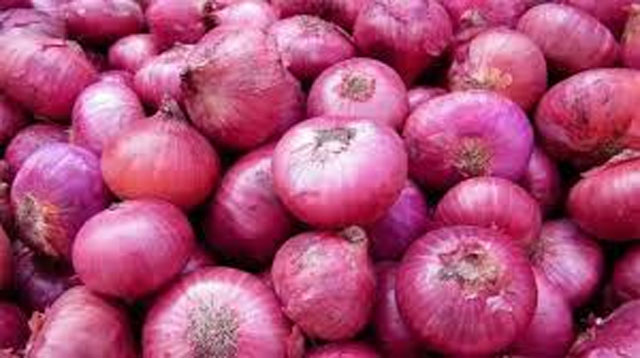Daijiworld Media Network - Bengaluru/Dharwad
Bengaluru/Dharwad, Oct 6: A steep crash in onion prices across Karnataka has left farmers grappling with heavy losses, but a decades-old drying technology developed by the Indian Institute of Science (IISc), Bengaluru, could be the much-needed solution — if only it reaches the grassroots.
In recent weeks, the average market price of onions has slumped from Rs 5,000–Rs 6,000 per quintal to about Rs 1,700 per quintal, with retail prices hovering between Rs 8 and Rs 18 per kg. The sharp fall has been attributed to reduced exports to neighbouring countries and increased self-sufficiency in other Indian states like Telangana, Odisha, West Bengal, and Kerala.

For farmers in Karnataka, who typically spend around Rs 50,000 per acre to produce 30–40 quintals of onions, the sudden price drop has slashed profit margins and jeopardised their livelihood. Normally, each farmer sends around 2,000 bags of onions to markets in other states at this time of the year, but the slump in demand has reduced shipments by half. Those without storage facilities are delaying sales, risking spoilage and waste.
Back in the early 1990s, IISc’s Application of Science & Technology for Rural Areas (ASTRA) pioneered a vegetable and fruit drier that preserves produce by drying, powdering, and packaging it with a shelf life of six months to a year. Upgraded in 2013 by its successor, the Centre for Sustainable Technologies (CST), the technology now uses biomass fuel and solar-biomass hybrid driers that can even operate after sunset.
The technology has been shared with NGOs and self-help groups but has yet to be widely adopted by farmers. Experts believe this innovation could transform the way farmers handle surplus crops, helping them convert fresh produce into value-added dried goods that can be sold later at better prices.
“This is not new to us — drying and storing food is an age-old practice,” said Shamsundar Subbarao, head of the Centre for Renewable Energy and Sustainable Technologies (CREST) at the National Institute of Engineering (NIE), Mysuru. “What’s changed is the use of modern technology, like solar-enabled heaters and machines, which make the process faster and more efficient.”
According to Svati Bhogle, chairperson of the NGO Technology Informatics Design Endeavour (TIDE), the drying technology also empowers rural women by enabling them to set up small-scale processing units and market dried vegetables and powders.
“Farmers prefer solar or hybrid driers since they don’t require constant monitoring and can work even after sunset. However, for this to succeed, consumer demand for dried products must grow to sustain the market,” Bhogle said.
Experts stress that widespread adoption of IISc’s drying technology could help farming families reduce post-harvest losses, gain financial stability, and shield themselves from the devastating effects of sudden price crashes.
For now, however, the lack of awareness and support means that the innovative solution continues to remain underutilised — even as farmers struggle to cope with the onion glut and tumbling prices.